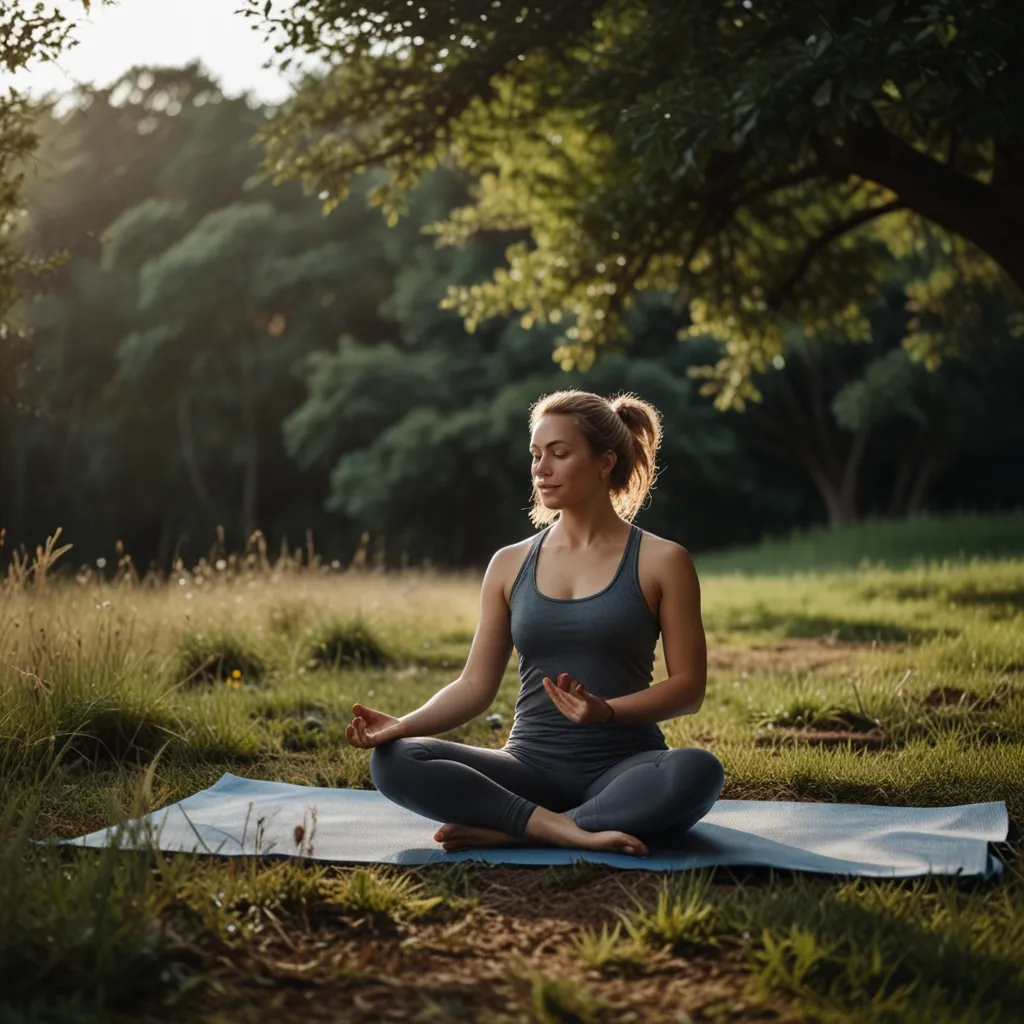Have you ever wondered why some people seem to move through their days with an effortless sense of stamina? I’ve spent years looking at energy—how it comes and goes, what sustains it, and how cultural habits shape our daily peaks and valleys. When I began exploring traditional Chinese routines, I was struck not just by their simplicity, but by their remarkable subtlety. Rather than chasing quick fixes, these habits coax the body into steady, sustainable performance.
Let’s consider the way a day begins. In many homes across China, you’ll find a quiet ritual unfolding even before the sun is up: gentle rubbing of the temples, kneading the base of the skull, and tracing small circles along the ears. I found that this self-massage isn’t just about feeling awake—it’s about setting the body’s energy pathways, or meridians, in motion. This practice, passed down for generations, primes circulation and wakes up the nervous system. I challenge you—when was the last time you took even a minute to simply greet your body before reaching for your phone or coffee?
The next layer isn’t about heavy exercise. Instead, there’s a principle I like to call the art of mindful motion. Throughout the day, traditional Chinese wisdom frowns upon the modern tendency to push until exhaustion. Instead, every hour or so, I’m reminded to pause—not for a scrolling break, but for a micro-reset. Something as small as rolling my ankles, stretching my neck, or breathing deeply into my abdomen makes a tremendous difference. The key here isn’t just the action, but the consistency. Sustained energy doesn’t come from a single workout but from these repeated, gentle interventions.
Pause for a moment and reflect: Are your breaks truly breaks, or just mental distractions? The Chinese approach invites you to step back before your battery hits empty. It’s a preventative strategy—preserving reserves instead of scrambling for ways to refuel after burnout.
Have you noticed how meal times can make or break your energy levels? Traditional eating patterns in China flow with the sun. Lunch—the main event—lands squarely between 10 a.m. and 2 p.m., when digestion is at its peak. Breakfast and dinner are lighter, often warm, thoughtfully seasoned with ginger or cinnamon to kindle metabolism. What struck me is how this schedule aligns with the body’s natural rhythms rather than fighting them. I started experimenting myself, shifting my heaviest meal to midday and lightening up at night. The difference in afternoon clarity and evening calmness surprised me.
It’s also worth noting that food seasonality plays a subtle but vital role. Root vegetables in cold months, bitter greens in spring—the landscape of the plate changes with the weather. This ties back to a larger principle found in Chinese wisdom: your body is part of its environment, not separate from it.
Sometimes, the practice is as simple as how we move from place to place. I began swapping short drives and elevator rides for mindful walking. This didn’t just up my step count—it fundamentally shifted how I experienced movement. With each inhale for three steps, each exhale for four, I found myself more present and surprisingly more energized. Walking meditation is a concept that may seem foreign at first, but its effects are immediate. It’s movement transformed into restoration, not depletion.
Let’s not forget the importance of review. Before dinner, I started doing a brief audit—not of finances or emails, but of my day’s energy. Which tasks left me tired? Which ones seemed to refill my cup? Over time, I noticed patterns. Certain meetings, for example, drained me repeatedly, while creative work or outdoor time restored me. This reflection isn’t about judgment. It’s about informed adjustment. What if you built your next day around the activities that actually restore you, rather than just filling your calendar out of habit?
There’s a beautiful quote from Laozi that I often return to:
“Nature does not hurry, yet everything is accomplished.”
The brilliance of these habits is in their subtlety. They’re not flashy or difficult to adopt, but require an attunement to your own limits and cycles. In the rush of modern productivity, it’s easy to assume that more effort means more output. Yet, in my experience and in these traditions, it’s wise conservation and rhythmic restoration that win the day.
You might ask, isn’t there a risk of becoming too passive, of never pushing your limits? I used to wonder the same. But what I found is that these gentle practices don’t hinder ambition—they sharpen it. By consistently avoiding the crash-and-burn cycle, you’re free to apply your highest energy to what matters most.
Why do we shy away from tuning into our own energy patterns? Is it habit, culture, or simply lack of awareness? Reflecting on these questions helped me realize just how much influence small, consistent practices can have. The idea of energy as a finite resource isn’t new, but the ways we squander or cultivate it often go unnoticed.
Another favorite saying comes from Confucius:
“The expectations of life depend upon diligence; the mechanic that would perfect his work must first sharpen his tools.”
Energy, from a Chinese perspective, is the tool to be honed, not pushed to the breaking point. Each self-massage, each mindful pause, each aligned meal, and each meditative walk are ways of sharpening that tool.
So, how do you see your own daily rituals? Are they serving you, or are they keeping you on a treadmill of fatigue? What’s stopping you from tweaking your mornings with a touch of self-massage or reconsidering the timing and texture of your meals?
Here’s an unexpected angle: these routines don’t demand elaborate equipment or special training. The wisdom is in the simplicity and the gentle repetition. There’s no need for expensive supplements or time-consuming regimens—just a willingness to pay attention and respond to the body’s quiet signals.
That’s where the true advantage lies. In a world awash with productivity hacks and energy drinks, it’s the ancient, almost invisible practices that yield the most consistent results. Is it possible that the best ways to sustain our energy have been hiding in plain sight all along?
As you move through your day, I invite you to try just one or two of these habits. Start with the morning massage, or set a reminder for an hourly stretch and breath reset. Observe—not judge—what shifts for you. The journey toward sustained energy isn’t a sprint; it’s a gentle series of choices that compound over time.
I’ll leave you with one last question: If you could make one change today to support your natural flow of energy, what would it be? The answer, as these traditions remind us, may be far simpler than you think.






